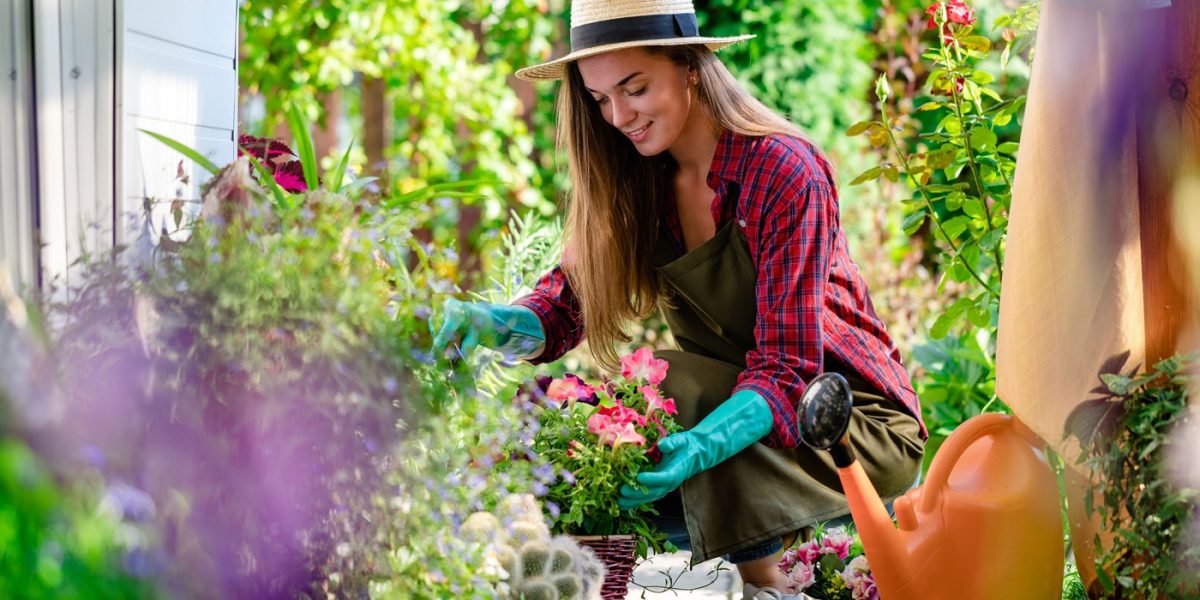Deploy Folding Table of contents
Gardening can be a form of exercise that is both fun and good for your health. It involves repetitive motions, stretching, and physical activity that can be beneficial for fitness, mental and physical health. In this article, we will explore the many benefits of gardening, from physical exercise to mental health benefits, and how it can be beneficial for individuals of all ages.
How Gardening can be a Low-Impact Form of Exercise
Gardening can be a low-impact form of exercise that is perfect for those who may not be able to participate in more strenuous forms of physical activity. It doesn’t require expensive equipment or a gym membership and can be done in the comfort and privacy of your own home. Gardening can involve a combination of standing, squatting, lifting, and kneeling, which can help to improve flexibility and increase strength. It also requires repetitive motions, such as shoveling, raking, and weeding, which can help to improve balance and coordination. Regularly engaging in gardening can help to improve your overall physical fitness.
What are the Mental Health Benefits of Gardening?
Gardening can also be beneficial for mental health. Interacting with nature can have a calming and restorative effect, helping to reduce stress, anxiety, and depression. It can also be a form of mindfulness, helping to keep the mind in the present moment and away from the worries of everyday life. Gardening can also provide a sense of purpose and accomplishment. Whether it’s harvesting vegetables or simply watching a plant grow, gardening can help to boost your mood and increase self-confidence.
Exploring the Positive Impact of Gardening on Physical Health
In addition to being a low-impact form of physical exercise, gardening can also be beneficial for physical health in other ways. Exposure to the sun helps the body produce vitamin D, which is essential for healthy bones and teeth, as well as helping to regulate the immune system. Gardening can also be a form of weight-bearing exercise, as it requires physical effort which can help to strengthen the muscles and bones. Additionally, gardening can help to improve circulation, digestion, and breathing.
The Benefits of Gardening for Individuals of All Ages
Gardening can provide benefits for individuals of all ages. For younger people, it can be a way to interact with nature and bond with family members. For seniors, it can be a way to reduce stress and remain active. Gardening can be tailored to each individual’s needs and abilities, so it can be a form of exercise that anyone can enjoy.
How to Get Started with Gardening as Exercise
If you’re interested in incorporating gardening into your exercise routine, the best way to get started is to do some research. There are many books, magazines, and websites devoted to gardening, so you can find tips and tricks to help you get the most out of your garden. You should also talk to experienced gardeners and ask for their advice and opinions. Once you’ve done your research, you can start buying the equipment and supplies you need, and get started with your own garden.
Gardening can be a great way to get exercise, improve physical and mental health, and develop a sense of accomplishment. It’s a low-impact form of exercise that can be tailored to individual needs and abilities, so it can be beneficial for people of all ages. With some research, planning, and a little bit of hard work, anyone can reap the rewards of gardening.
Here are some sources that are useful to explore the benefits of gardening. Gardening for Health by Jane Schofield, The Complete Guide to Flower Gardening by Gail Harland, and Health Benefits of Gardening by Jane Dolan.



